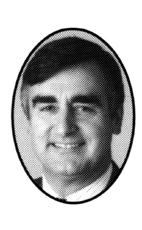Mr. Speaker, in March 1994, as he did today, the Prime Minister relied on corroboration from his former colleague, lawyer Paul LaBarge, who also denied what Mr. Matthews said. Mr. LaBarge testified under oath yesterday as well before the Senate committee maintaining his denial.
However, this morning's Globe and Mail reported obtaining a copy of the tape of last January's telephone call in which Mr. LaBarge contradicted his testimony of yesterday and confirmed Mr. Matthews statements. I quote the following passage from this morning's Globe and Mail :
"Mr. LaBarge confirms that the meeting took place just before Mr. Chrétien launched his bid for the Liberal leadership and that campaign contributions were discussed".
My question is for the Prime Minister. Given this recording in which Mr. LaBarge himself confirms Mr. Matthew's sworn testimony, will the Prime Minister, who has now been twice contradicted, acknowledge that his credibility is seriously in doubt?

